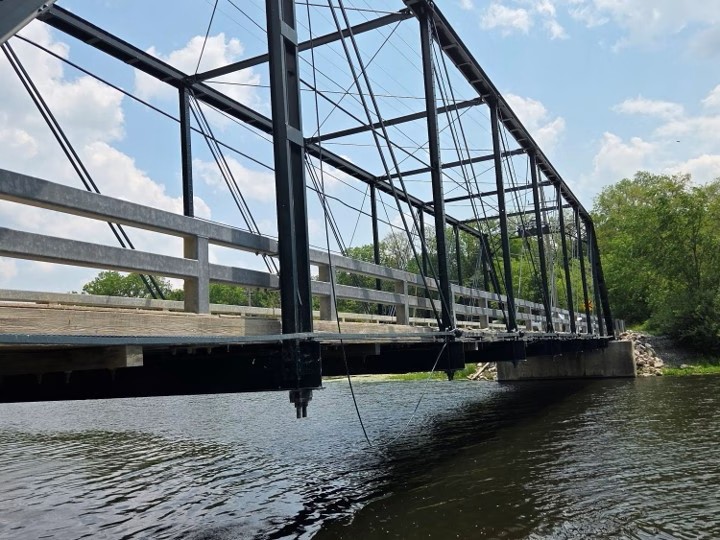A proposed $1 billion data center just outside of Milan City, could bring in millions in tax revenue in Washtenaw County, according to Ann Arbor SPARK, a nonprofit that works to stimulate the local economy. In addition to Augusta Charter Township, Washtenaw County, plus the Washtenaw Intermediate, Lincoln and Milan school districts could all see an increase to their tax base.
However, many Augusta Charter Township residents—who would have the data center in their backyards—have expressed concern it would negatively impact their rural way of life.
Meetings
At the latest meeting July 22, only one attendee spoke in favor of a rezone—saying he thought the data center would bring in needed money to the community. Those opposed said the rezone did not fit within the master plan, and would bring unwanted noise and an industrial feel to the area.
One resident called it a choice to “sell ourselves to the devil.”
Another recapped the history of developments the township has kept out to preserve their agricultural feel and said retaining the more restrictive zoning helps ensure that continues.
“We moved to the county for peace and quiet to raise our kids,” said a resident who’s lived in Augusta Township since 1986, “If we wanted noise we’d pick a city. Our farm land needs to stay farmland…. You have already turned many acres into solar fields that have no benefit to Augusta residents. The gun range was put in with no input with residents.”
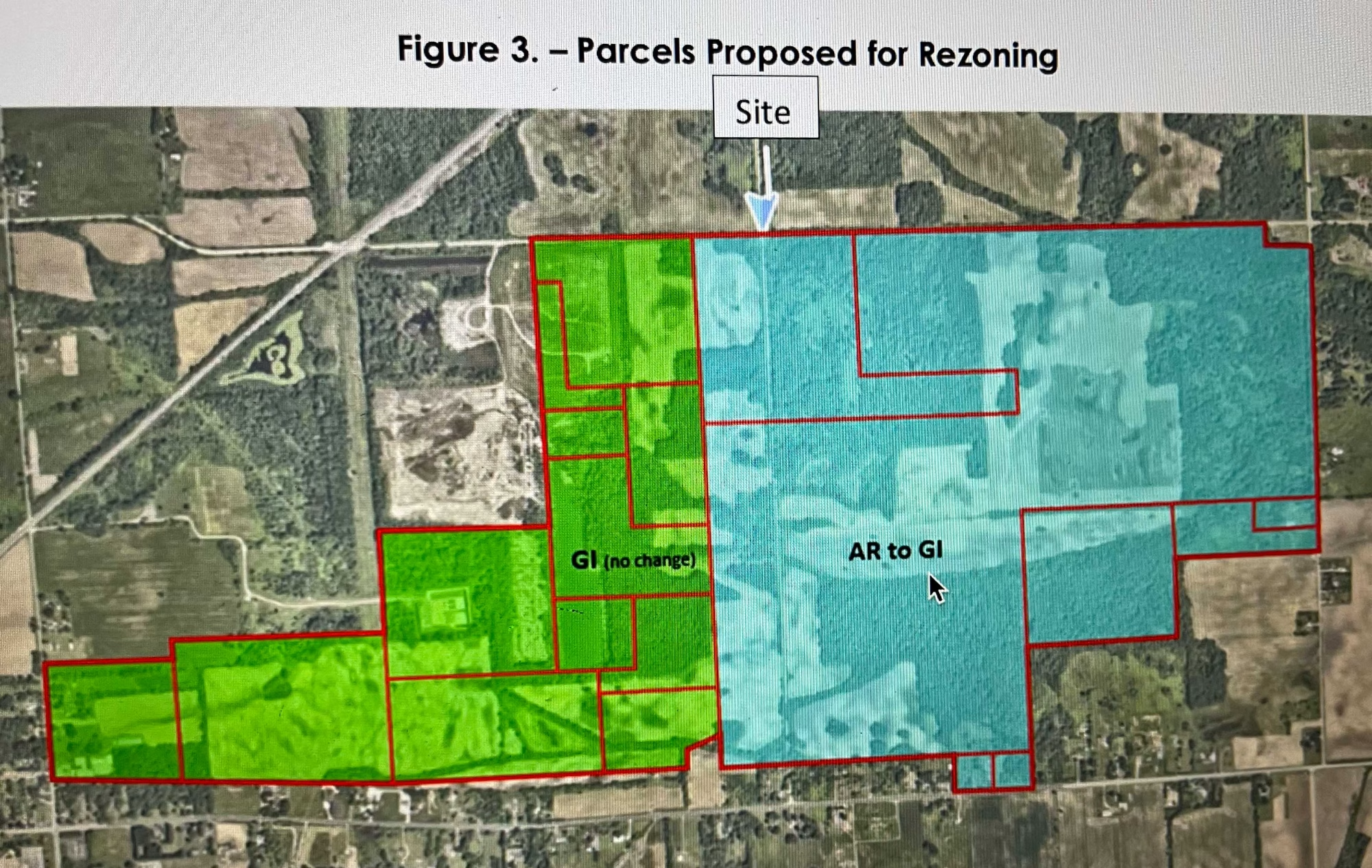
Augusta Charter Township trustees changed 522.2 acres previously zoned as Agricultural/Residential (in blue, above) to General Industrial. The rest of the acreage (in green) needed for a more than 800 acre proposed data center was already General Industrial.
The vote
Still, the Augusta Charter Township trustees voted unanimously to approve the rezoning of agricultural land, which paves the way forward for Thor Equities to present a site plan. The site plan will have more details on the proposal and allow the township to better understand the impacts of the potential project before they make a final decision.
The trustees change of 522.2 acres previously zoned as Agricultural/Residential was made conditional upon use by the data center since the trustees agreed other higher impact industrial uses were not appropriate for the location. The rest of the acreage needed for the more than 800 acre site was already General Industrial.
Trustees said they have been working hard to study the issues and make the best decision for the community. Keith Gipfert and Michael Green said they visited other data centers to investigate the sound and found them relatively quiet.
Township Clerk Kimberly Gonczy said the master plan does allow for growth in certain areas and said the project would be a boon to the township’s tax base, while also allowing the township to provide water and sewer to residents who currently do not have access.
“I would be letting everyone in this township down to vote against that because it’s bringing water and sewer to the west side of the township, which is something we’ve never been able to offer our residents there. It’s been a sore spot with me since I started here,” Gonczy said. “Everyone should have that opportunity. This is huge for our township. Not to mention the tax dollars and the improvements and the things that can happen.”
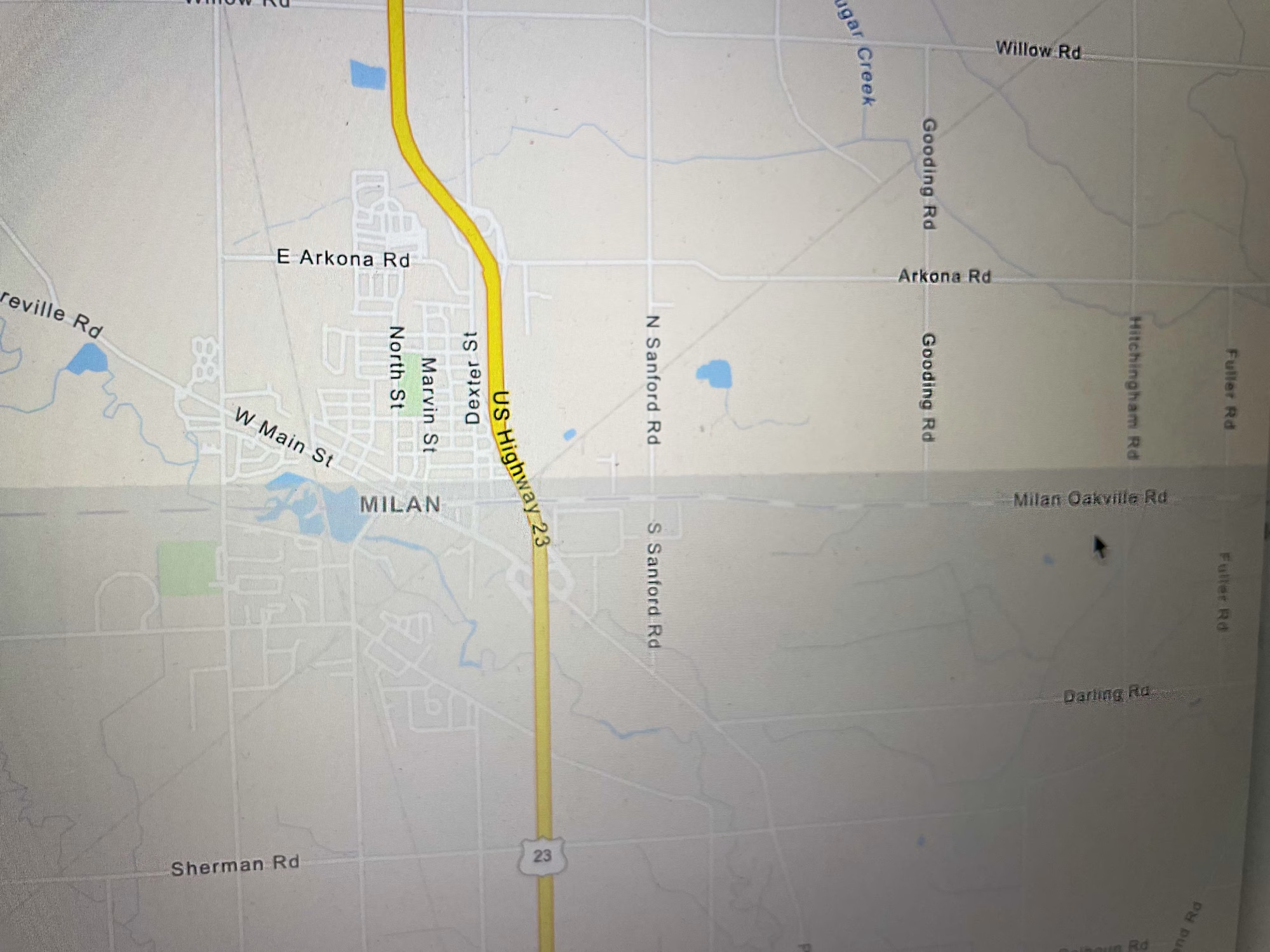
The data center would be east of Milan, running along Milan Oakville Rd. on the south; Sanford Rd. on the west; Arkona Rd. on the north; and Hitchingham Rd. on the east.
Impacts on Milan:
The data center would be directly east of Milan City and northeast of the Federal Correctional Institution, Milan; Vern R. Campbell park, which houses soccer fields, the Field of Dreams Flying Field, and an equestrian center.
Phil Santer, chief of staff and senior vice president of business for Ann Arbor SPARK, said the project is expected to sit back 1300 or 1600 feet from the road, preserving the rural character of the area. The surrounding trees would not be removed and could also act as a buffer.
Milan Mayor Ed Kolar said it won’t contribute to Milan City’s tax base or use Milan water. However, he said since Milan will be the largest city close by it could lead to more shopping if employees drive through the area. It could also provide potential jobs. In addition, the data center would pay taxes toward Washtenaw County, the Washtenaw Intermediate School District, Milan Area Schools and Lincoln Community Schools, said Santer.
The site is mostly vacant, with some parcels being used for farmland on the east side, according to documents provided by Augusta Charter Township’s planners, Carlisle Wortman. The Ann Arbor planning group also notes that the east side of the site is relatively flat, while the west side has the presence of hills and berms. The area is forested, especially around Sugar Creek and Washtenaw County GIS shows the presence of significant wetlands throughout the site, which reduces its potential for farming, indicate the planners.
County Business Growth:
Santer aids business development for Washtenaw County. His group is working with Thor Industries to try to site the data center in Augusta Township, which has the benefits of energy available to the north, water availability through Ypsilanti; and land availability.
Water:
The data center servers would generate a large amount of heat, which would require water for cooling. Santer said there are two ways to cool a data center–with water or air—and cooling by water is quieter. They plan to use water through Ypsilanti Community Utilities Authority (YCUA) for cooling. YCUA pipes in water from the Great Lakes Water Authority, which obtains its water primarily from Lake Huron.
Company response:
Katie Smith, a company spokesperson for Thor Equities, provided The Sun Times News with a statement, which said:
“We can confirm that this development would represent a significant opportunity to strengthen Augusta’s local economy by creating quality jobs, generating meaningful tax revenue, and improving infrastructure in the area. It’s important to note this project will improve utilities and not add any strain to roads, schools, or public services. We are committed to responsible development and will continue to prioritize community engagement as planning moves forward.”
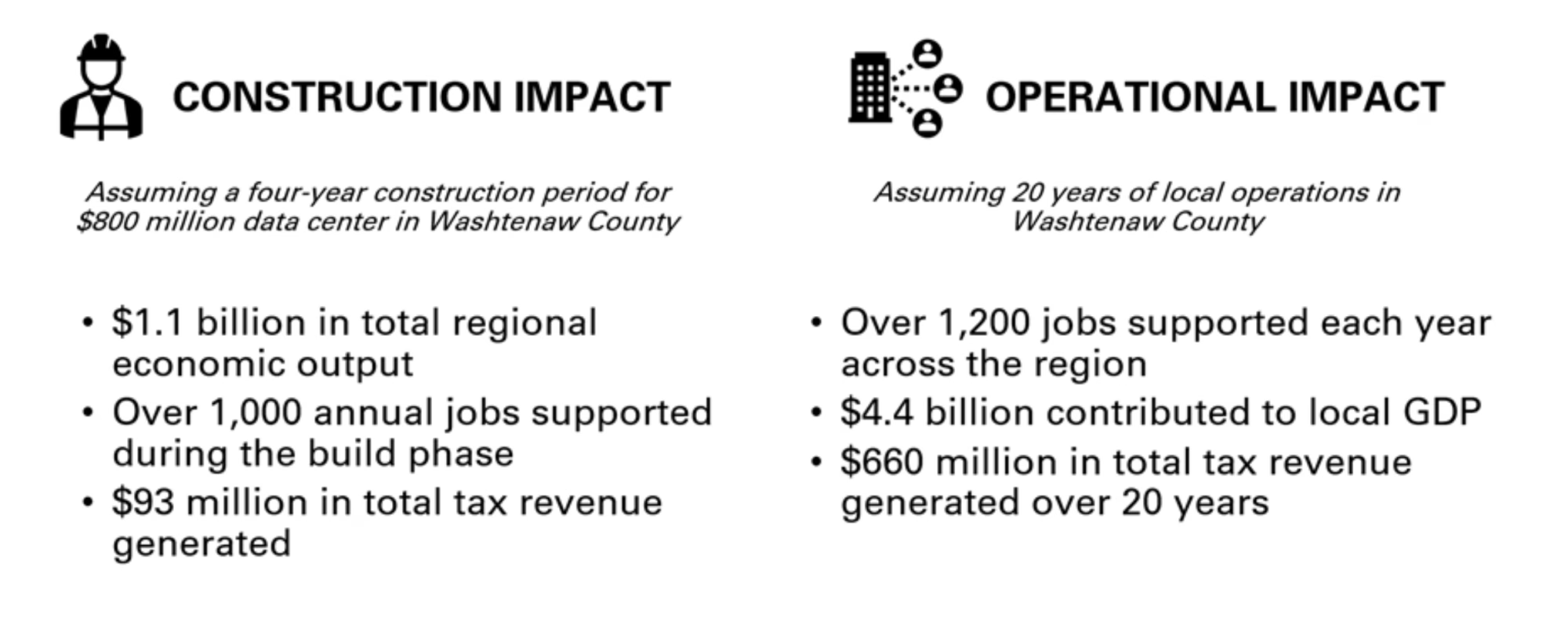
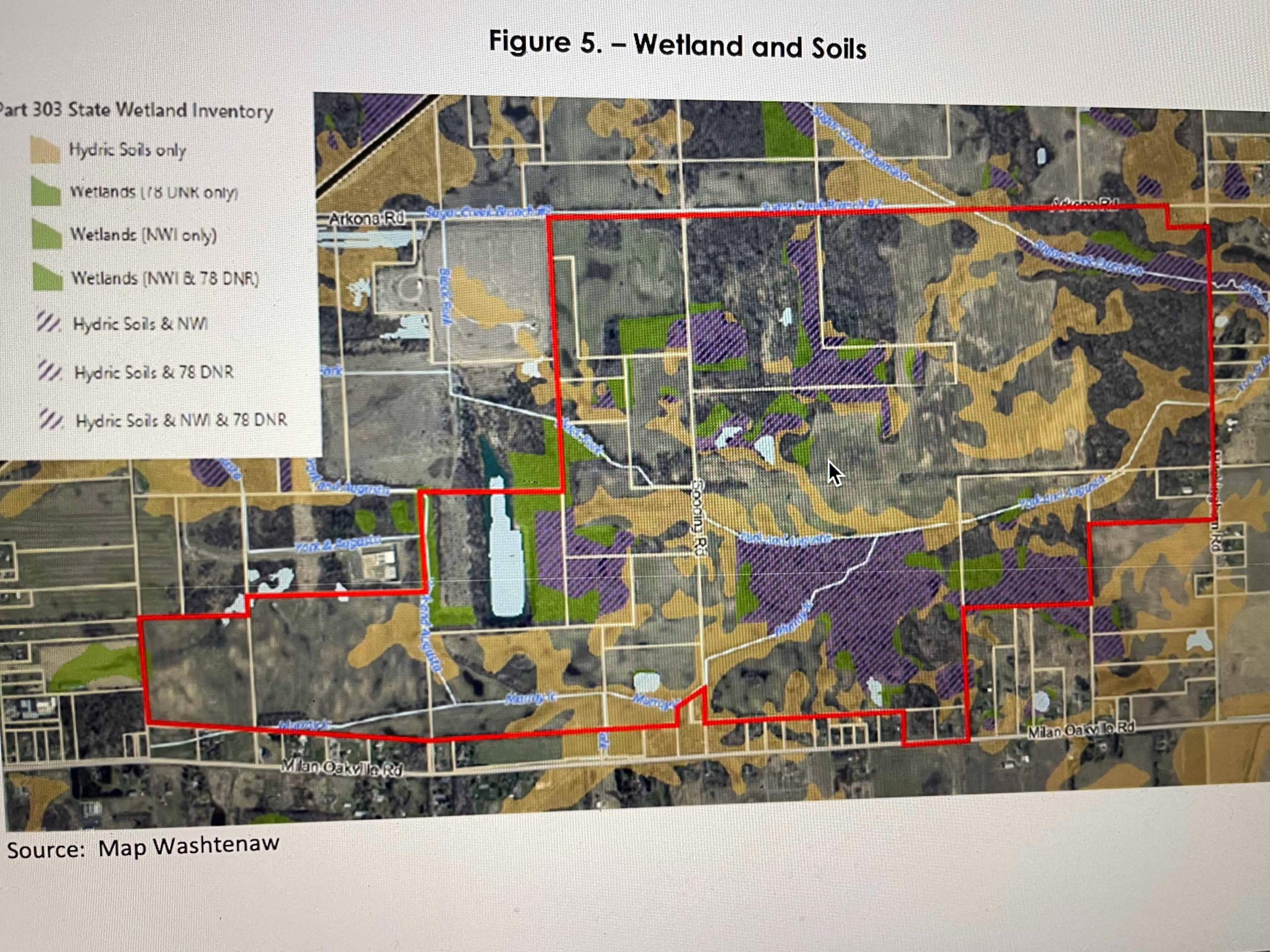





 8123 Main St Suite 200 Dexter, MI 48130
8123 Main St Suite 200 Dexter, MI 48130

